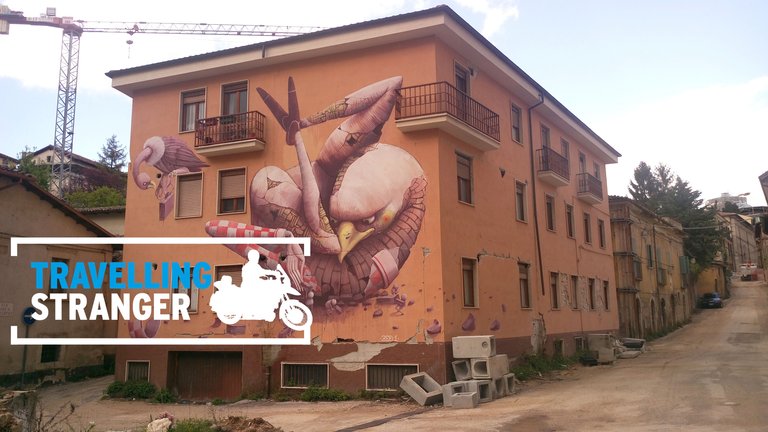
Hello My Steeming Pals!
A Stormy Night
I felt rough that morning as I opened my tent and peered out at the grey light with squinting eyes. The endless rain that night had kept me awake and transformed the campsite near Assisi into muddy mayhem. It was camping misery at its finest and I was in the thick of it with a sopping tent and a puddle of water that squelched through my sodden ground sheet. Clearly, it was time to pack my motorbike and leave the Umbrian Apennines. Further south, the mid Spring weather had to be better.
I left Assisi behind and followed the busy road to Foligno, Spoleto and then on to Terni. There was just one more town in my sights before making my escape to the Adriatic coast. The infamous town of L’Aquila.
L’Aquila…The Eagle
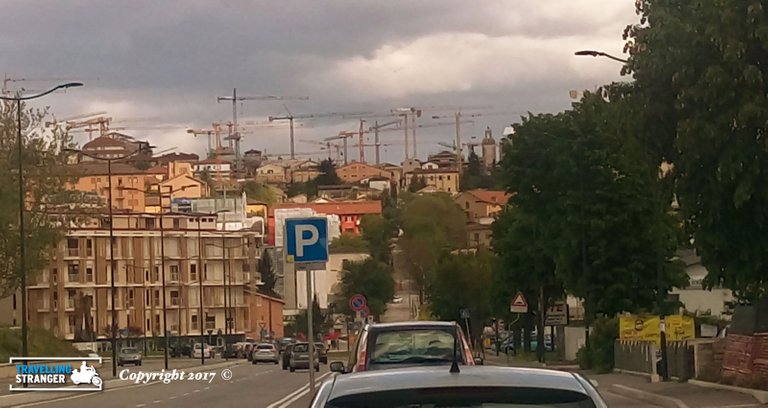
In the early hours of the 6th April 2009 everything in this appealing, small Italian town came to a grinding halt. An earthquake, 5.8 in magnitude (Richter scale) ripped through the squares, the alleys and architecture sowing death and destruction in one of the biggest natural disasters Italy has witnessed in recent years.
I had never been to a disaster area and held some reservations as to how appropriate a visit might be. After all, I intended to take pictures and poke my nose into people’s hardship and misfortune. Several years from the quake had passed though and I guessed visitors were now welcome to take an interest in the recovery process.
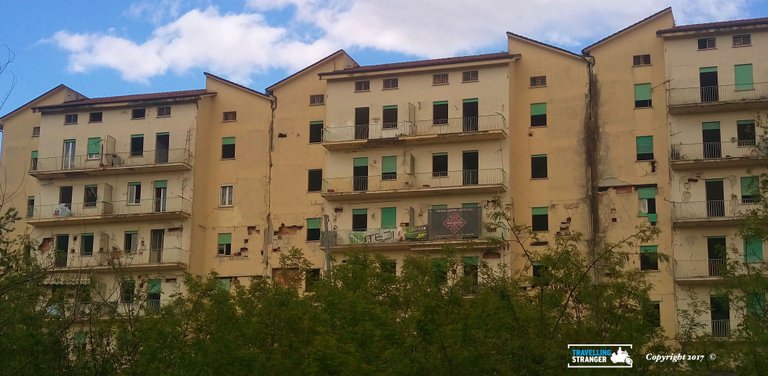
A Sky full of Crains
L’Aquila greeted me with the uncanny sight of a crane crowded horizon. There was little traffic on the roads that led me to the old town, no cafes, no markets, no shops or offices either. Suddenly, disjointed and awkwardly leaning buildings appeared. There were condominiums four to five stories high, empty and abandoned with banners advertising their imminent “special demolition”. The walls were cracked with recurring “X” shaped patterns whilst wide patches of missing masonry gave a feeling of total neglect. Doors and shutters were left purposely open and made the eerie hollowness of empty homes all the more glaring. This was just the beginning.
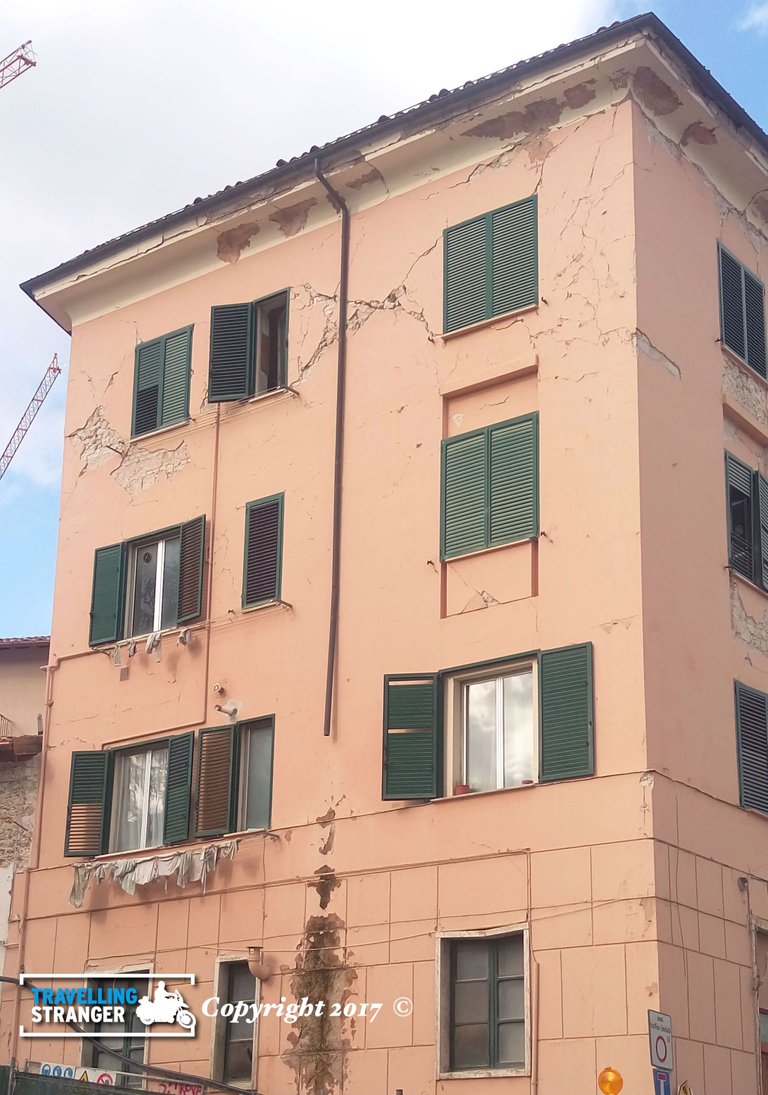
The majority of roads were blocked off to traffic and access even on foot. Wooden barricades didn't permit as much as a peek at what was hidden behind.
Most jaw dropping of all to me though was the sight of the thirteenth century church of S. Maria di Paganica. Once an iconic symbol of L’Aquila, this place of worship now missed the roof above its nave and three quarters of the once frescoed apsis was reduced to a heap of chipping on the ground.
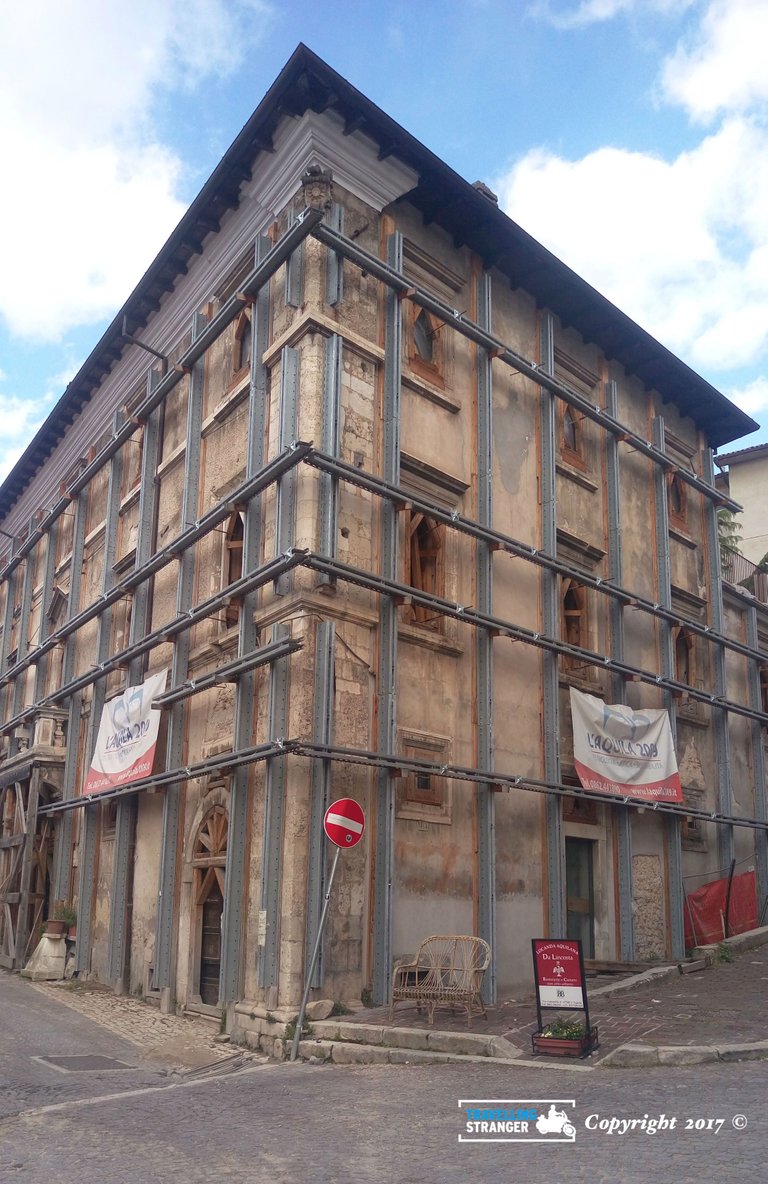
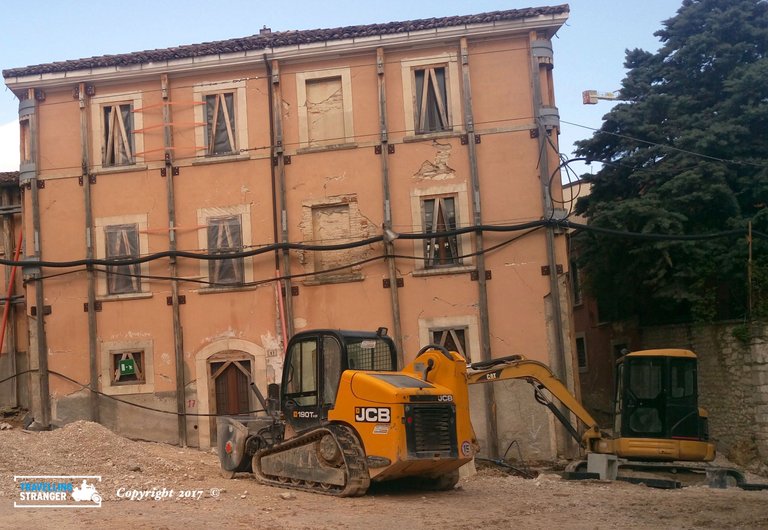
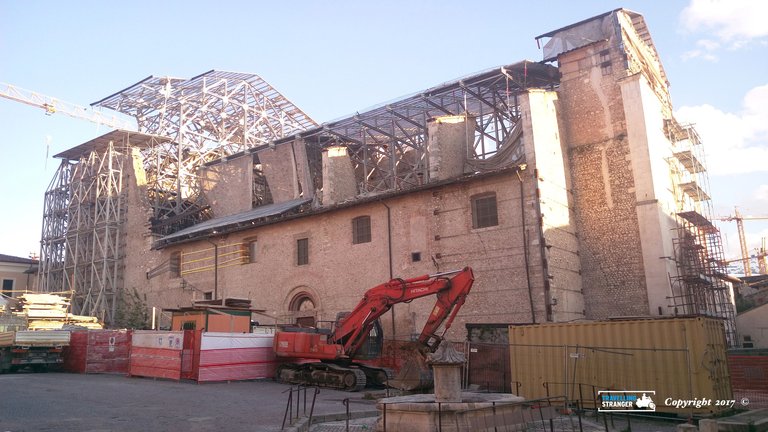
Ask the Locals
I was aghast at the destruction, the endless ruins and the ghostly stillness around me. I plucked up some courage though and asked a couple of strolling locals what they felt about their town and how the disaster had affected their lives. Young, perhaps in their early thirties, they didn’t mind my questions and answered with a smile about life as a “teremotato” (literally an “earthquaked person”).
“It’s like putting your life on hold indefinitely” they said.
“Some can’t take it and leave for a new start elsewhere. Others stay and help in the reconstruction efforts”.
“We are all aware though that life in our hometown as we knew it, is over. The old communities have been erased for good. Many people have died.”
“What’s bothering is that L’Aquila is now known for what happened here with the earthquake more than anything else. Those who come to visit these days have little idea of what our town was like before April of 2009”.
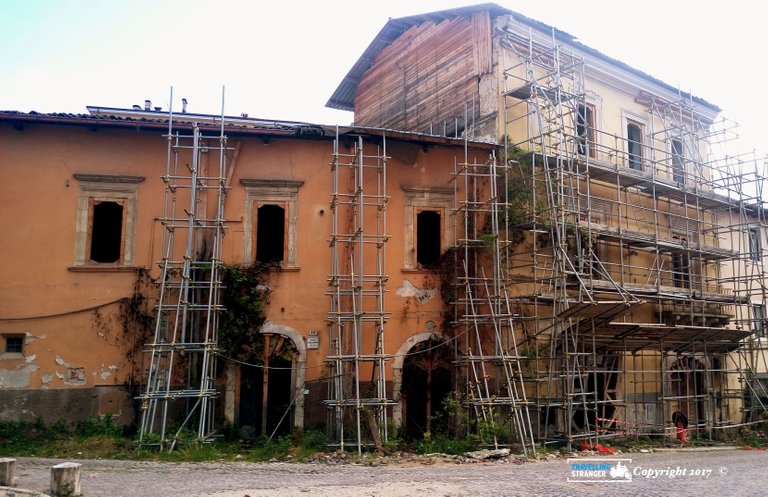
I left l’Aquila with a heavy heart, shaken and shocked. Images and words cannot describe the feeling of disbelief and helplessness that the old town conveys in its current state. I felt for the people of this place and their precarious sense of identity with a home town that is now a pale reminder of its former self. Livelihoods, careers, community, homes, all gone, all demolished. I thought of the over 300 fatalities of that distant April morning in 2009. Many were young students, just starting out in life.
My Tent
I rode away and searched for a place to camp for the night as it got dark. It didn’t matter any more if it meant more cold, rain and lack of sleep inside my wet tent and damp sleeping bag. After what I had just seen in L’Aquila, any camping hardship for the night was a very minor thing in comparison. At most, I hoped it might be a small tribute to the tenacity of the Aquilaians.
Congratulations @john-gpr! You have completed some achievement on Steemit and have been rewarded with new badge(s) :
Click on any badge to view your own Board of Honor on SteemitBoard.
For more information about SteemitBoard, click here
If you no longer want to receive notifications, reply to this comment with the word
STOPsincerelly
hey @jihn-gpr that is very detail explanation. i sad when i hear it. in our country AceH was happens too at 26 december 2004 ago. this is the big and the danger erthquake. and that time also happens TSUNAMI . TSUNAMI is the water in the sea out to our place. many peope death at that time. my family , my friend and many people of aceh felling sad that time. btw your content is the best. i am not patient for you next post and next nice information from you. nice to meet you . @sogata
Thank You for your kind comment. Sumatra is one of my favourite places on Earth. It's beautiful, unspoiled and wild. It takes a special kind of person to live there with the on going threat of volcanoes, earthquakes, raging rivers and of course tsunamis. I know though that if I lived there I probably would never want to leave.
It makes me shake my head. All of that effort to rebuild, when another earthquake could come again tomorrow. Then again, it might not for another 100 years.
That's mad that they tried to send the geo-scientists to jail.
Though as individuals we can both agree that it might make sense to leave, human communities behave differently. Your heritage, land and culture are very much part of who you are, sometimes the the only thing some people have. L'Aquila will be rebuilt, tougher and stronger and if there's another earthquake in ten or fifty years time, it'll be build it up again and again and again as has been done in the past and as long as there is a desire for a community to cling on to its roots.
By the way, there is no such thing as an earthquake free zone in Italy. 😀
"there is no such thing as an earthquake free zone in Italy." yes, I was thinking that. People have been living and building there since millennia.
Wow thanks for letting us know about this. Sending my best wishes to a place I called home many years ago.
Pleased you appreciated 👍
It is shocking that after decades of human work to build up a town, just one earthquake or other natural disaster can tear it to pieces. Such a shame.
It is indeed. 😔
ohh sad @john-gpr i am back bro
👍